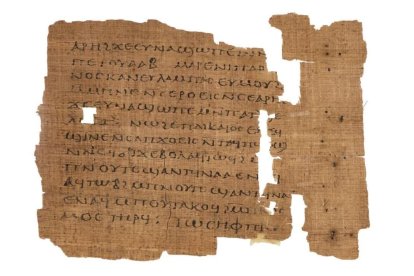London: 'One of the oldest books in existence' auctioned for $3.9 million
The manuscript, written in Coptic, is one of the "oldest Christian liturgical books," according to Christie's auction house.

(Wikimedia Commons)
(AFP / VOZ MEDIA) A collection of Christian liturgical texts written in Coptic, presented by Christie's as "one of the oldest books in existence," sold for 3.06 million pounds ($3.9 million) on Tuesday in London, the auction house announced.
The Crosby-Sch øyen Codex, among the oldest books of Christian liturgical texts
This manuscript written in Coptic, an ancient Egyptian language, on papyrus, between the 3rd and 4th centuries, is "the oldest book of Christian liturgical texts" according to experts.
This manuscript auctioned by Christie's in London, under the name of the Crosby-Schøyen Codex, is also the oldest book belonging to a private collection.
Composed of 51 sheets, of the 68 that made up the original book, each page contains between 11 and 18 lines written in two columns by a single copyist.
The manuscript was discovered and acquired in the early 1950s in Egypt by a Swiss collector, Martin Bodmer, before changing hands several times over the following decades.
These writings also constitute "one of the rare well-preserved examples" of the appearance of the book as a means of transmitting texts, with a technique that would evolve until the invention of the printing press in the 15th century, according to the auction house.
The writing owes its name to an American patron named Margaret Reed Crosby, who aided the University of Mississippi acquire it, and to Norwegian collector Martin Schøyen, its last owner.
The price reached for the text in the bidding is far from the records paid for other ancient manuscripts, such as the Sassoon Codex, the oldest Hebrew Bible, sold last year for more than $38 million by Sotheby's auction house in New York.
The sum paid for the Crosby-Schøyen Codex is also a far cry from the approximately $32 million paid by Microsoft founder Bill Gates in 1994 to acquire Leonardo da Vinci's Leicester Codex.
RECOMMENDATION





















